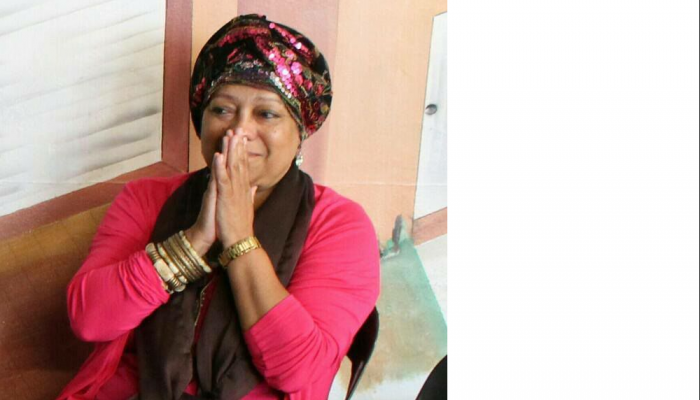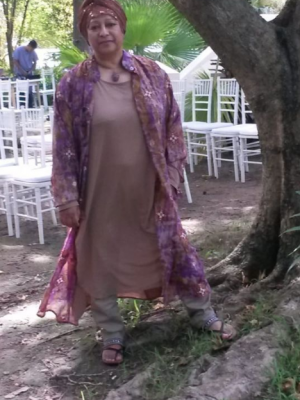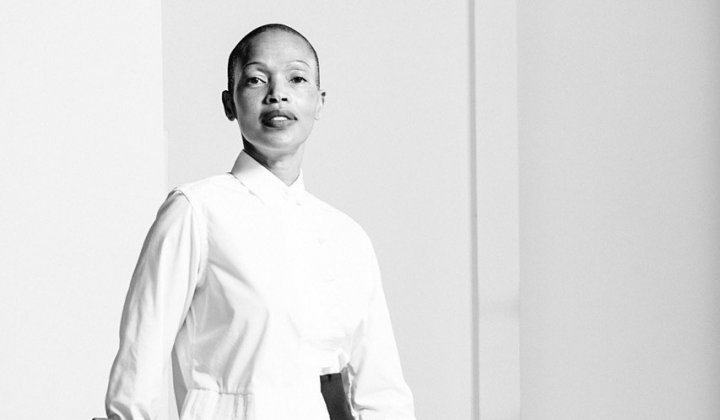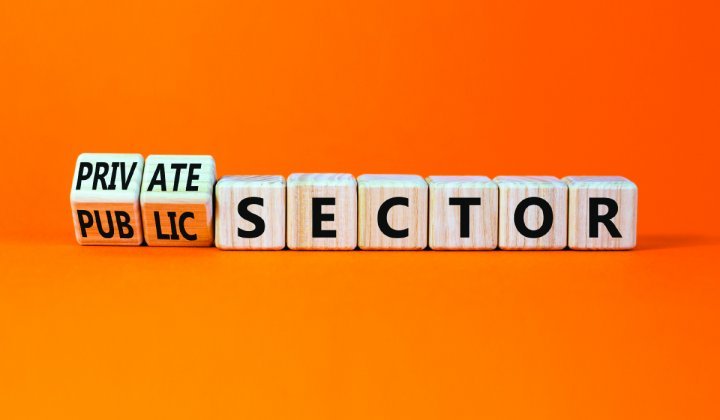When the coronavirus pandemic began spreading around the world, the immediate concern was to protect our physical health. What went unspoken, even as quarantines and lockdowns extended across the globe, was the long-term impact all this would have on our mental wellbeing.
“This isn’t the first time the world has faced a pandemic, but the magnitude has been unprecedented,” says Dr. Frans Korb, board chairman of the South African Depression and Anxiety Group as well as a practising psychologist and psychiatrist in Johannesburg. “There was so much emphasis on the medical aspects of the disease – what to do, what not to do, how it is spread, how many people are dying – that we forgot about the psychological impact, which is what we’ll have to deal with for much longer, even after they find treatments or a vaccine.”
Someone under constant stress can easily suffer from out-of-control anxiety, a depressive episode, or even a mental breakdown. That’s why Korb emphasises the need for us to manage our stress, especially given that the pandemic and its effects will be with us for a long time.
“The first thing that caused stress during the lockdown was uncertainty,” he says. “If it was shorter than 10 days – and I don’t think anywhere in the world had that – people would have coped. But the longer it went on the more people felt insecure. That’s why people felt the need to panic buy and hoard supplies until the government assured us that supermarkets and pharmacies would stay open.”
Stop spreading fear
Unfortunately, even though governments offered some financial support, that didn’t do away with inner fear. Indeed, when lockdowns eased, people faced the second main concern: fear of infection. This is typically high in the groups most at risk, such as the elderly or those of poor health. Their worry is about whether or not they’ll get the virus, whether or not they’ll recover, and how the world will respond either way.
...even though many people have died, many more have recovered.
“There’s a concern that people who test positive might be labelled as ‘dirty’ or shamed for spreading the disease,” Korb says. “This could lead to increasing levels of guilt and even suicide, as was the case when a 34-year-old Italian nurse ended her life because she blamed herself for bringing the virus to her workplace.”
One suggestion is to have pre-counselling before a Covid-19 test to educate people. This could, for example, make it clear that the virus won’t infect you forever or make you a danger to others for the rest of your life. This could also explain that it’s okay to be anxious or depressed during this time and that even though many people have died, many more have recovered.
“The people with misinformation – or not enough information – are the ones that do the stigmatising,” Korb says. “That’s why we must fall back on science. Once we understand the facts – using only reliable sources like the World Health Organisation, the Centres for Disease Control, or the South African government’s coronavirus website – the stigma should stop.”
Find healthy ways to connect
As much as it’s important to keep abreast of the latest developments, Korb is a strong believer in setting a hard limit on the amount of time we spend on social media and, in particular, news updates. This is especially important for parents who might use devices as a way to babysit their children while the grownups work or take a break.
A far better option is to encourage youngsters to spend time outside (with the necessary precautions) or do non-tech activities indoors. The same goes for adults who, regardless of whether or not they’re in some form of lockdown or quarantine, have an abundance of better things to do.
“If you have to be at home, don’t stay in bed all day,” he says. “Get up every morning and, even if you’re not going to leave the house, get dressed properly. And if you don’t have urgent work tasks, do things you’ve always wanted to, like cleaning out the garage, sorting out the cupboards, or organising your photo collection. This is an opportunity to catch up.”
More important than finding things to do (which can itself become unhealthy if taken too far) is staying connected. As much as the focus will continue to be on social distancing for the foreseeable future, Korb clarifies that this is more about physical distancing than anything else.
“Isolation can make us lose the ability to be social, and the loneliness can lead to suicidal thoughts and attempts,” he says. “That’s why it’s so important to reach out, even if we can’t – or rather shouldn’t – socialise as much as we’d like.”
We have to carry on living. Life hasn’t come to an end.
Focus on others
Indeed, one thing that helps is for people to focus less on themselves and more on others. Now is also a good time to be more generous in giving back, whether it’s by donating money to those who are in need or by volunteering time to a worthy cause. This has the added benefit of countering the effects of feeling alone.
“We are social beings,” says Lémeez Gasant, a Cape Town-based psychologist and former nurse. “We long for connection through the people we interact with. And when social interaction is limited, it does have an effect. We all experience it differently, but some of the common signs and symptoms would be sadness and grief for the things that we have lost. It could also be anger and hostility – lashing out at others, blaming everybody else, and saying that government isn’t doing enough.”
Gasant has seen first-hand how Covid-19 affects the body, the mind, and the soul. For example, she’s noticed that many people have increased feelings of panic and anxiety. This can cause changes in appetite (impacting energy and mood) as well as difficulty sleeping, which leads to a further sense of chronic exhaustion and being tired all the time. If left untreated, this could spiral into depression and, in extreme cases, leave people feeling so worthless about themselves and hopeless about the situation that they take their own lives.
“It’s good to check in with people on a daily basis, and I think a lot of people are already doing that on different chat lines and social media sites,” she says. “If you notice a change in the behaviour of a friend or a family member – where they start to talk about how worthless they feel and how they can’t cope with the uncertainty – then it’s time to reach out more and offer to help. One of the other ways that you know it’s time to reach out is when people start complaining of more aches and pains. That’s a big sign that they’re not caring for themselves.”
Keep calm and carry on
Korb’s main message during this time is that we need to look after ourselves. “It’s not always easy, but there are lots of ways to live a balanced lifestyle: eating properly, staying active, and getting enough sleep,” he says. “That’s much better than drowning your sorrows in alcohol and other substances or spending all day staring at screens.”
More than that, he also advises us to stay positive. Yes, there are cases when a person becomes socially withdrawn and needs to seek professional help, in which case it’s important to do so. But as much as we need to acknowledge our difficult emotions as normal and understandable given what we’re all going through, we can’t allow feelings of hopelessness and despair to take over our lives.
“The world is going to be a different place after Covid-19 is over,” he says. “We’ll all have to start living differently and thinking differently compared to what we’ve done in the past. But we have to carry on living. Life hasn’t come to an end.”
Bring back the balance
Indeed, for many people, Covid-19 could be the beginning of something better. Even though the initial hard lockdown caused an overwhelming sense of anxiety and loneliness from the forced time people spent at home, many have used isolation as a chance to reconnect with themselves.
“Every cloud has a silver lining,” Gasant says. “If we take this time to do introspection, we can examine our lives and see whether we’re on track with where we want to be. More importantly, we can check in to see if we’re living in the fear zone and do something about that.”
Gasant believes that it’s far more productive and valuable to be in ‘the learning zone’ – where the focus is on emotional awareness, personal development, and self-growth – and considers it one of the many gifts from the lockdown. Another gift is the opportunity to take it easy, especially at a time of the year when things feel more stressful.
“We’re always complaining about how exhausted we are, so now is actually a time to slow down,” she says. “Enjoy a cup of tea as a mindfulness practice and perhaps even rediscover long lost hobbies. Before Covid-19, we were so busy going to work and raising families that we lost the balance in our lives. Now is the time to bring it back.”
[Sidebar]
How to deal with the psychological impact of Covid-19
Covid-19 has impacted people all over the world. Social distancing, (extended) lockdowns, as well as new regulations, have caused increased stress every single week. But even as governments have eased restrictions, the emotional toll hasn’t gone away. That’s why Cassey Chambers, operations director of the South African Depression and Anxiety Group, recommends the following practices to help us pause and ‘reset’, regardless of what’s happening in the world.
1. Limit news, social media, and other forms of information overload
Whether or not they had a mental health issue before Covid-19, many people felt anxious, overwhelmed, and struggled to cope and adjust. One of the alarming statistics that came out of our online survey was that 65% of people felt ‘very stressed’ during the lockdown. But even with many of us already glued to our phones and TVs, we were also encouraged to go on this museum tour or do that online course. It was just too much. Worse, having news always on in the background isn’t just bad for our mental health, but it also negatively impacts other people in the household.
We have to find a balance. That’s why we suggest people filter how much information they’re getting, perhaps by choosing specific times in the day to access news and social media. And even though we’re encouraging people to find virtual ways of staying in touch, we have to put a limit on all the Zoom sessions and WhatsApp groups. Otherwise, that can also be too much pressure, with constant updates and constant pinging raising anxiety.
2. Acknowledge your emotions but don’t dwell on them
During the lockdown, we received many calls from people who felt anxious, lonely or stressed. We’d never had a lockdown before, so we didn’t know what to expect. It was a roller-coaster of emotions, almost on the same level as the five stages of grief: denial, anger, depression, bargaining, and acceptance. But it was (and is) okay to be frustrated, numb, or have a bad day. Being open about that is part of the process.
Because the whole nature of depression or anxiety is ‘low mood and low motivation’, it’s important to always have a go-to ‘resource list’ of things to do. Don’t assume that you’re going to be able to come up with positive self-talk. Instead, you should be proactive and start planning. Sometimes you’ll just want to take a break or have a ‘duvet day’, but there should also be things in your toolkit that you can do to feel better.
3. Keep up your ‘normal’ routines while accepting that this isn’t a ‘normal’ time
For people with pre-existing mental health problems (or any chronic illnesses), it’s important to keep taking your medication and keep consulting with your medical professionals, even if it has to happen online or on the phone. (Call your pharmacy in advance to make sure they have your medication in stock and to check if they can deliver to your home.) But for everyone else, understand that what we’re trying to do during Covid-19 isn’t normal. Instead, we’re trying to create a new normal.
When we talk about working from home or teaching our kids, it’s all happening in a crisis. So, cut yourself some slack. As a working mom, having to juggle professional and family responsibilities, it was important for me to be flexible and focus on what I could control. Some days were good, and I’d get things done. Other days were more difficult, and that was okay. It’s hard for everyone to adjust, especially for parents taking on everyone else’s anxieties, too. That’s why self-care is so much more important during this time. Only when your cup is full can you help others.
Call the South African Depression and Anxiety Group on 0800 456 789 (24 hours a day, 7 days a week) or visit www.sadag.co.za for more resources.








